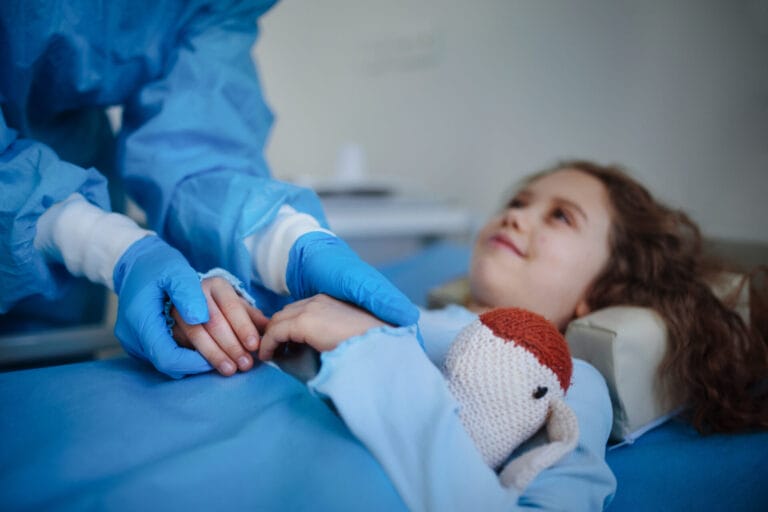The Importance of Post-Operative Care for Children
If your child has just undergone surgery, you’re probably feeling a mix of relief and worry. You’re relieved that the procedure is over, but at the same time, you’re concerned about how you can best support their recovery.
It’s a lot to juggle! But don’t stress. We’ve got you covered. Post-operative care is where you, as a parent or guardian, can make a world of difference in helping your little one bounce back.
Here are some friendly, practical tips to guide you through the recovery phase.
Follow the Doctor’s Orders (Seriously, Don’t Wing It)
We all think we can just figure things out as we go, but this is not one of those times. Your child’s surgeon will give you specific instructions for a reason. They’ve seen it all and know what works. Trust them.
Whether it’s the timing of medications or how to care for the incision, don’t improvise. It might seem overkill to you, but sticking to the plan can prevent complications, infections, and unnecessary trips back to the doctor.
A few things you don’t want to forget:
- Medications: Keep track of pain meds and antibiotics. Set an alarm if you need to.
- Wound care: Ensure the incision is clean and dry, even if your child begs to remove the bandage.
- Dietary restrictions: Some surgeries require a soft-food diet or avoiding certain foods. It is much better to know now than after a rogue chip sends them into discomfort.
Keep the Recovery Zone Cozy
Now’s the time to channel your inner Martha Stewart. Create a space where your child can rest comfortably. They’ll need a peaceful environment to heal, so maybe hold off on family movie night if it gets too rowdy.
Think cozy blankets, their favorite stuffed animal, and a stash of books or quiet activities within reach. It doesn’t hurt to keep snacks and water nearby either—Hydration is key.
On the flip side, you also don’t want your child lying motionless for days on end. The doctor might recommend gentle movement or walking, depending on the surgery.
It’s a balancing act between resting and staying active. But hey, if you can survive toddler tantrums, you’ve got this.
Watch for Anything Weird (Your Parent Radar is Key)
Nobody knows your child like you do. So, if something seems off, trust that gut instinct. Here are a few signs that something might not be quite right:
- Fever: Call your doctor if your child spikes a fever greater than 100.5 F after surgery. Better safe than sorry.
- Worsening pain: Some discomfort is normal, but if the pain is ramping up instead of fading, it’s worth checking in with your doctor.
- Redness or swelling: Keep an eye on the incision site. If it looks angry or swollen, it could be infected.
- Changes in behavior: If your usually energetic kiddo seems super lethargic or irritable, don’t ignore it.
You’re not expected to know all the medical stuff—that’s what the pros are for. When in doubt, give your doctor a call.
Trust the Experts Who’ve Got Your Back
At Pacific Coast Pediatric Surgery, we understand post-operative care can be overwhelming. Dr. Philip K. Frykman and our team make sure you’re never left guessing. With years of experience in pediatric surgery, we give you the confidence that your child’s care plan is tailor-made for their recovery.
You’re not alone in this. We’re here to help your little one heal safely and comfortably.
More Tips to Help Your Child Recover
Here are some straightforward recovery tips to make this process easier for everyone:
- Encourage rest, but not too much rest: Your child needs to relax, but they also need to move around a bit to prevent stiffness.. Think light walking, not running laps.
- Hydration is your best friend: Keeping your child hydrated can help flush out any anesthesia and speed up recovery.
- Offer healthy snacks: Focus on foods that are easy to digest but still packed with nutrients to help them heal faster. A smoothie can work wonders.
Moving Forward Together
Post-surgery recovery doesn’t have to be scary or stressful. By sticking to the doctor’s plan, creating a comfortable healing space, and keeping a watchful eye for anything out of the ordinary, you’re already doing an amazing job. Your child is tough, and with your support, they’ll be back to their usual antics in no time.
If you ever feel unsure, don’t hesitate to reach out to your medical team. We’re here to make sure this journey is as smooth and stress-free as possible for both you and your child. Contact us today.








